
August's Best Reviewed Fiction
Featuring New Titles from Ann Patchett, James McBride, Paul Murray, and More

Ann Patchett’s Tom Lake, James McBride’s The Heaven and Earth Grocery Store, and Paul Murray’s The Bee Sting all feature among the best reviewed fiction titles of the month.
Brought to you by Book Marks, Lit Hub’s “Rotten Tomatoes for books.”
*
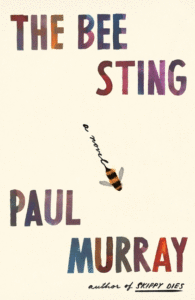
1. The Bee Sting by Paul Murray
(Farrar, Straus and Giroux)
17 Rave • 4 Positive • 2 Mixed
Read an excerpt from The Bee Sting here
“The Bee Sting…ought to cement Murray’s already high standing. Another changeup, it’s a triumph of realist fiction, a big, sprawling social novel in the vein of Jonathan Franzen’s Freedom. The agility with which Murray structures the narrative around the family at its heart is virtuosic and sure-footed, evidence of a writer at the height of his power deftly shifting perspectives, style and syntax to maximize emotional impact. Hilarious and sardonic, heartbreaking and beautiful—there’s just no other way to put it: The Bee Sting is a masterpiece.”
–Jonathan Russell Clark (The Los Angeles Times)
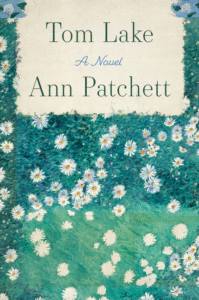
2. Tom Lake by Ann Patchett
(Haper)
16 Rave • 4 Positive • 1 Mixed
Read an interview with Ann Patchett here
“A gorgeously told and quietly devastating story of family, love, and identity. The book is unpretentious in its erudition, yet filled with allusions and galvanized by a passion for literature and theater … Chekhovian atmosphere and elements leave their imprint on every page of Patchett’s novel … Throughout Tom Lake, art and life intersect, contradict, and implicate each other, both conceptually and textually.”
–Priscilla Gilman (The Boston Globe)
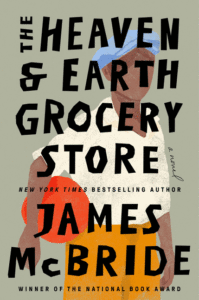
3. The Heaven and Earth Grocery Store by James McBride
(Riverhead)
14 Rave • 1 Positive
“Confirms the abiding strength of McBride’s vernacular narrative. With his eccentric, larger-than-life characters and outrageous scenes of spliced tragedy and comedy, “Dickensian” is not too grand a description for his novels, but the term is ultimately too condescending and too Anglican. The melodrama that McBride spins is wholly his own … If there’s a ramshackle quality to McBride’s plotting, it’s the artful precariousness of a genius. His expansive collection of ominous, preposterous and saintly characters twirls like loose sticks in a river, guided by a physics of chaos beyond all calculation except awe … We all need—we all deserve—this vibrant, love-affirming novel that bounds over any difference that claims to separate us.”
–Ron Charles (The Washington Post)
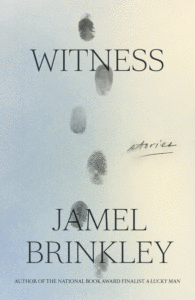
4. Witness by Jamel Brinkley
(Farrar, Straus and Giroux)
10 Rave • 2 Positive • 1 Mixed
Read a short story by Jamel Brinkley here
“Splendidly thought-provoking stories … Brinkley pierces the superficial and obvious—that what meets the eye is all there is to see—by displaying a more nuanced portrait of how we perceive and are perceived … Stylistically, the beginnings of these stories are akin to being thrust into a moving current—Brinkley doesn’t waste time on unnecessary setup or trivial fluff. His smooth prose rips and slips down the page, getting right to the point … Brinkley is a writer whose versatility knows no boundaries. He can make you laugh, cry, contemplate life’s deepest questions, remember what it was like to be a child, and feel the warmth, or chill, of your own family history. Tapping into the sticky stuff of humanity, each story is a gift of the highest quality, reminding us that we are all both in the audience and on life’s stage, even if we don’t know it.”
–Mateo Askaripour (The New York Times Book Review)
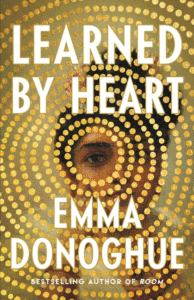
5. Learned by Heart by Emma Donoghue
(Little Brown and Company)
8 Rave • 4 Positive • 1 Mixed
“Donoghue is among the most fearless contemporary novelists we have: an immensely talented writer who is a great storyteller and, based on her extensive body of work, unafraid of subjects that give her less-courageous peers pause … A fascinating story set at an English girls school in 1805 and—wait for it—what we once called an insane asylum in 1815. It has characters with complex internal lives, insights into the human soul, and a wrenching love story that’s both queer and multiracial … Donoghue offers what I am sure Lister herself would view as a ripping good spin on her remarkable story.”
–Chris Bohjalian (The Washington Post)
Book Marks
Visit Book Marks, Lit Hub's home for book reviews, at https://bookmarks.reviews/ or on social media at @bookmarksreads.



















